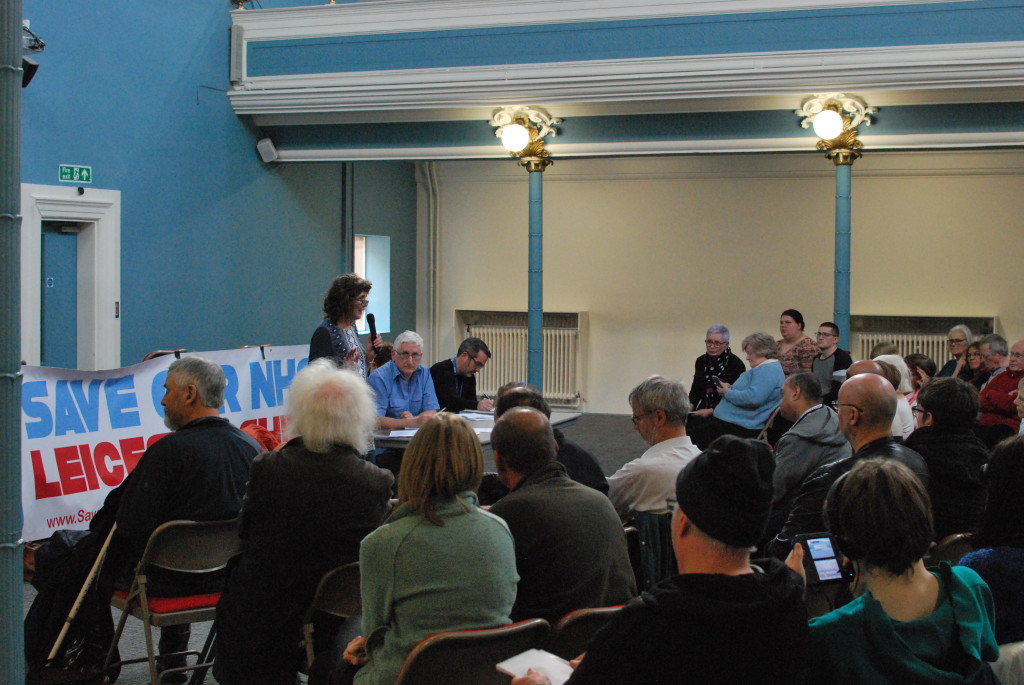Leicester NHS Trust Forced to Confront the Brutal Reality of Health Cuts
Around 80 people attended a politically charged Save Our NHS Leicestershire (SONHSL) public meeting last Saturday to discuss the planned reorganisation of Leicester’s hospitals.
Speaking at the meeting was Sally Ruane, a local health policy academic and NHS campaigner, and Mark Wightman, the Director of Communications and Strategy for the local NHS Trust.
But the speakers were not the main attraction at this event. For round about an hour, the audience bombarded the Trust’s representative with story after emotional story about the devastating effects of NHS cuts and the woeful inadequacy of care in the community.
SONHSL is concerned that the Trust’s plans do not include an increase in the number of beds, even though local hospitals currently face a crisis because of lack of capacity. The Trust states that reconfigured hospital facilities will have 2,048 beds. In May 2018, it had 2,045 beds!
With an ageing population and expanding need, this amounts to a real-terms cut.
The Trust believes an expansion in community services and different pathways of care will offset rising need for hospital care. This narrative is used by different hospital Trusts across the country to justify inadequate plans.
But the chronic underfunding across the NHS alongside cuts to local government spending, means that social care faces a crisis of similar, if not greater, proportions to that of the NHS.
Only last week, the Leicester Mercury carried a front-page article about a 94-year-old Leicester resident, Reg, who was shoved from hospital to home, and back to hospital again 13 times in the last ten weeks of his life, apparently in an effort to free up beds in acute hospitals. At one point, Reg was discharged with no care plan in place, and his family say they were not informed until they rang to check how he was! 52 hours later, Reg was back in the A&E with suspected pneumonia.
The audience at the meeting was clear: the crisis in the NHS has already put an unbearable strain on families. Many described how they had been forced to subsist on a meagre carers’ allowance, and become full-time carers for their loved ones. One such carer at the event, accompanied by his partner who suffers from MS, spoke about how he had contemplated committing suicide because of their situation.
The Trust’s spokesperson was slick. His job is not to flap in these circumstances. But in summing up he was forced to admit that the biggest risk in the Trust’s plan was that community services would not be able to make up for a standstill in the number of beds. This acknowledgement, after hearing so many painful stories, was as close to an admission of defeat than you would ever hear from a well-oiled NHS spin-master.
SONHSL, and groups like it across the country, are fighting for an NHS that is fit for purpose. We are fighting to expose inadequacies in the plans of the local Trust and to build a movement capable of forcing more money from this weak and wobbly government.
Socialist Party members, who are a part of the campaign, call for all cuts and privatisation in the health service to be reversed. We campaign for a fully funded, socialist NHS, run democratically by workers and service users. Pharmaceuticals and big corporations in the supply chain should also be taken under democratic workers’ control in order to prevent the NHS being bled to death by big business.



